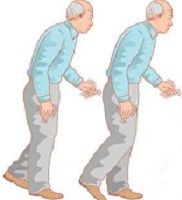Article
Parkinson's Disease: Early Physiotherapy Showed No Benefits
Author(s):
There's bad news for Parkinson's Disease patients: physiotherapy and occupational therapy appears to be fruitless, researchers found.

Physiotherapy and occupational therapy didn’t result in improvements in quality of life or the ability to perform activities of daily living (ADL) for patients with patients with mild to moderate Parkinson’s disease (PD). The finding was published in the Journal of the American Medical Association Neurology on January 19, 2016, and was led by Carl E. Clarke, MD, of the School of Clinical and Experimental Medicine at the College of Medical and Dental Sciences, at the University of Birmingham, in Birmingham, England.
The objective of the study was “to perform a large pragmatic randomized clinical trial to evaluate the clinical effectiveness of individualized physiotherapy and occupational therapy in PD.” Patients with PD often develop problems with motor control, despite treatment. Physiotherapy (PT) and occupational therapies (OT) are usually employed in the later stages of the disease, and the researchers wanted to determine whether those therapies could be beneficial for patients earlier.
Participants were recruited between October 2009 and June 2012 from 38 neurology or geriatric outpatient centers across the United Kingdom. The trial included 762 patients, who were randomized into groups who received PT, OT, or a control group that received no therapy. There were 381 patients in each group. The primary outcome measure was patient scores on the Nottingham Extended Activities of Daily Living (NEADL) Scale 3 months following randomization. The secondary outcomes were quality of life measures, adverse events, and caregiver quality of life.
There were 25 patients in the therapy groups who did not receive therapy, and there were 9 people in the no-therapy group who ended up receiving therapy due to worsening PD symptoms. “The mean NEADL total score deteriorated from baseline to 3 months by 1.5 points in the therapies group compared with 1.0 point in the no therapy group.”
The researchers concluded that “physiotherapy and OT using an individual goal-setting approach produced no clinically meaningful short- or medium-term benefits” in activities of daily living or quality of life measures “in patients with mild to moderate PD.” Further, “This evidence does not support the use of low-dose, goal-directed PT and OT in patients in the early states of PD.” They suggest that future studies should explore the development of structured and intensive PT programs for patients at different stages of PD.




